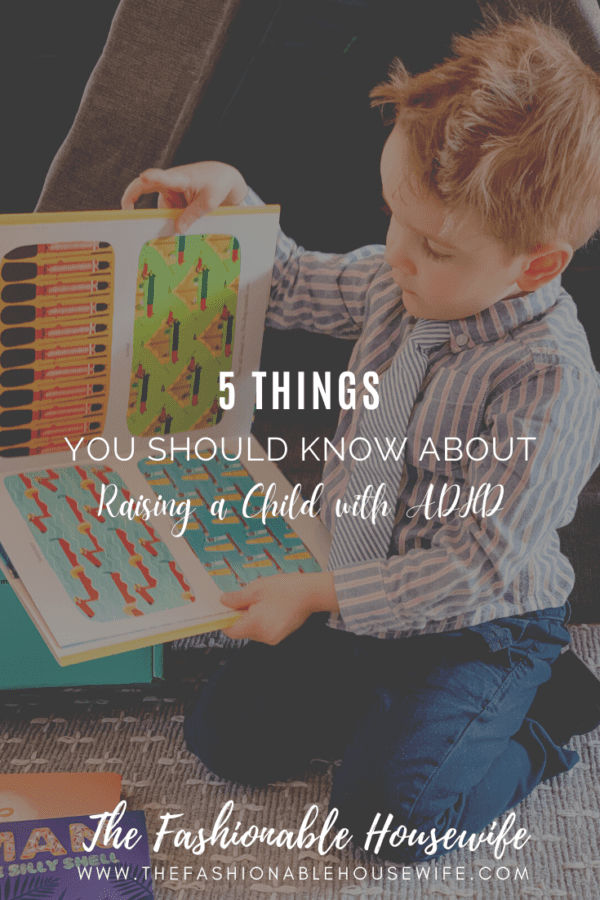
When we were growing up, getting handed an ADHD diagnosis — short for Attention-Deficit Hyperactivity Disorder — meant miles of red tape to get treatment and getting buried under a mountain of stigma. Today, we understand what ADHD is, but that doesn’t stop teachers, other parents or the world at large from looking down on us for a diagnosis. If one of your kids brings home a diagnosis, what do you need to know about raising a child with ADHD?
It’s Not Really an Attention Deficit
The phrase attention deficit is right there in the name, but when you break it down, it’s not attention that we’re lacking — it’s the executive function that’s missing. Everyone has various levels of executive function, which experts define as the “cognitive skills that help us plan, prioritize and execute complex tasks.” These are the skills that allow us to see a task, sit down, and complete the task without a problem. Individuals with ADHD and other executive function disorders struggle with the order of operations when it comes to even the most basic tasks. Something that should take two minutes, like brushing your teeth, ends up taking an hour because each task reminds you of something else that you need to do and by the end, brushing your teeth is forgotten altogether.
On the other side of this coin is hyperfocus. Instead of struggling to focus on a task, it becomes the only thing we can focus on. We can spend 12 hours learning all the details of the life cycle of the polyphemus moth, concentrating so hard on the single task that we forget to do everything else. Someone caught in the throes of hyperfocus can forget to eat, drink water, or go to the bathroom until something breaks their concentration. Unfortunately, it can be impossible to harness this hyperfocus, so it inevitably ends up centered on something other than what you’re supposed to be doing.
This juxtaposition is why kids with ADHD are often labeled as lazy or challenging to teach. These kids are happy and excited to learn, but they don’t learn the same way other kids do.
It Looks Different in Girls
For a long time, ADHD was almost exclusively diagnosed in boys. Girls weren’t diagnosed because they didn’t demonstrate the same symptoms. They weren’t hyperactive or disruptive in class, so they were overlooked. This is because ADHD in girls doesn’t present as hyperactivity. Instead, these girls are labeled as flighty, constantly daydreaming, carefully hiding the damage being dismissed as the space cadet is doing to their mental health and self-esteem.
Girls and women are more likely to be diagnosed with inattentive ADHD, but the fact that they aren’t bouncing off the walls doesn’t mean they don’t have ADHD or are any less deserving of treatment and support.
It’s Not Contagious
There is so much negative stigma that surrounds mental illness as a whole. When you start mentioning ADHD, people start talking down their noses at you and making excuses to keep their kids away. Here’s a news flash for the PTA Karens — ADHD isn’t the flu or COVID. It’s not contagious and people who live with this diagnosis aren’t any lesser for it.
Can you tell that’s a bit of a sore spot? Sorry.
The negative stigma surrounding mental health and mental illness is the real villain here. The easiest way to overcome this stigma is to start the conversation. Make people talk about it. The discussion will be uncomfortable, especially at first. Still, the point is to gently nudge these people out of their comfort zones and help them better understand what it’s like to live with ADHD or any other flavor of neurodivergence.

Patience is Essential
Patience is a skill that you already need to hone as a parent. If kids are good for one thing, it’s for pushing boundaries and testing your patience. Parenting a kid with ADHD will push those skills even further because a lot of what they’re experiencing is going to be different from how you grew up.
The challenge here is not to lash out when things don’t look the way you think they should. If your kid with ADHD hyper focuses on something and stays up all night, don’t start yelling. Instead, have a conversation with them. Explain the consequences of their actions, even if that means having to go to school for the day with no sleep. Turn it into a learning opportunity. Shift your perspective and above all, be patient. We can’t reiterate this enough.
You Are Not Alone
It might feel like you’re struggling as the parent of a child with ADHD, but we’re here to tell you that you’re not alone. According to the CDC, more than 2.4 million children between 6 and 11 years old are diagnosed every year. The number climbs to 3.3 million for the 12-17 age bracket. There is support for you and your child and remember — you are not alone.



